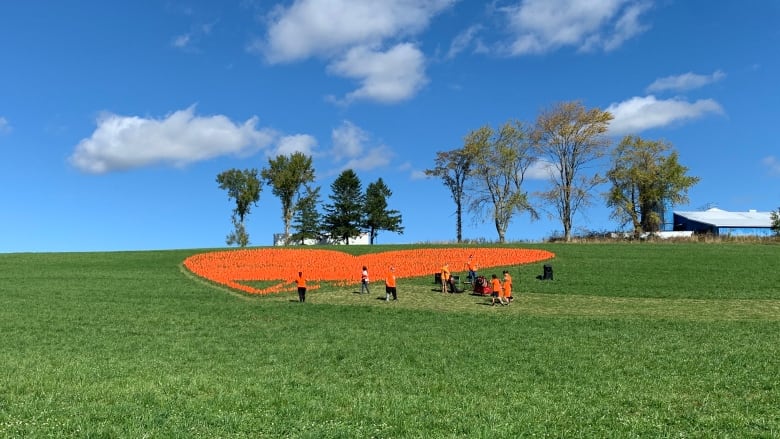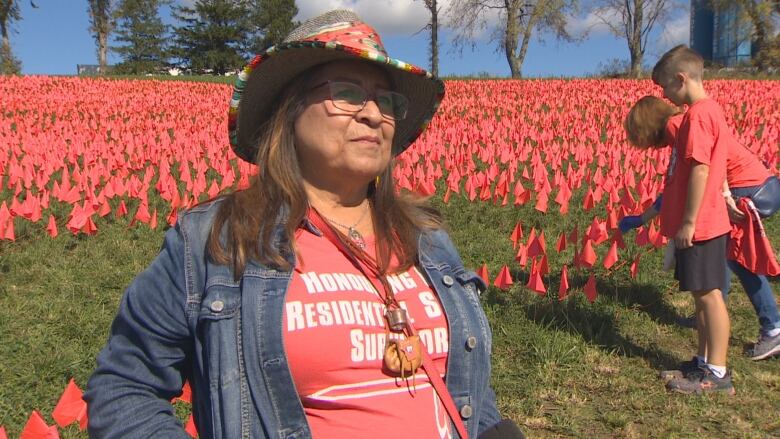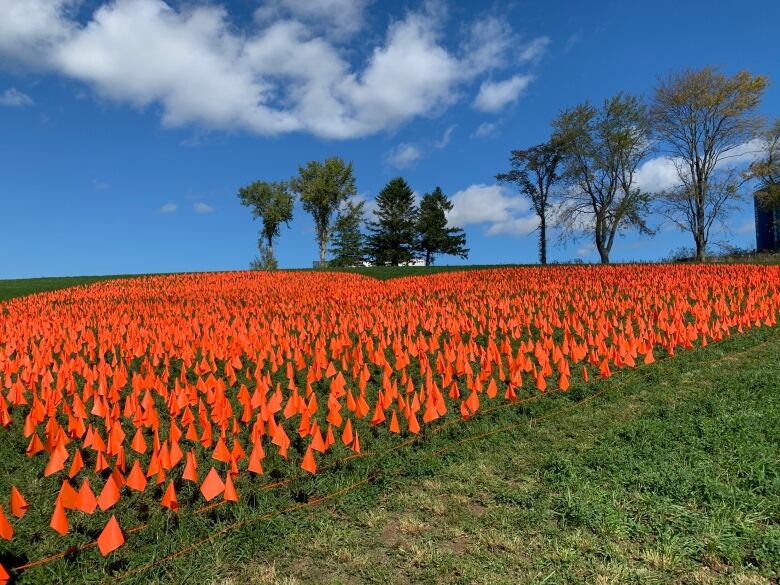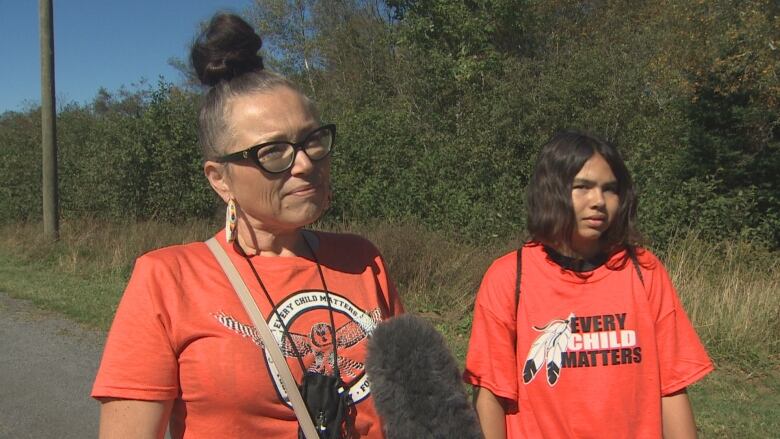Big orange heart at N.S. residential school site a reminder of the past
Orange flags staked to mark National Day for Truth and Reconciliation

To mark the second annual National Day for Truth and Reconciliation, Sipeknekatik First Nation held a cultural event and unveiled a massive heartmade up of 14,000 tiny orange flags atthe former site of the Shubenacadie Residential School.
Each flag represents a loved one who survived residential school or didn't come home.
"I put several flags down, one for my grandmother and my dad, my brother who passed on," said Dorene Bernard, a residential school survivor who has been working to educate others about what happened.
"They didn't get to see the healing that's being done, you know? They didn't get to see the commemorations and the people that are honouring survivors."
The Shubenacadie Residential School demolished in 1986 was in operation from 1930 to 1967.
According to Parks Canada, the school, and others like it throughout Canada, aimed "to assimilate Indigenous children as part of a broad set of efforts to destroy Indigenous cultures and identities and suppress Indigenous histories."

The impact this school had is still felt in the community. Bernard said even after the school closed, many children didn't return home because of the period known in Canadian history as the Sixties Scoop, where Indigenous children were taken from their families and adopted out.
"We're still trying to locate those people as well and welcome them back home. So there's a lot of work to be done with commemoration, but this is a beautiful start," Bernard said.
Drumming, singing and traditional dance were front and centre at Sipeknekatik First Nation's showcase on Saturday.

There was also a lot of focus on the younger generation and the future.
The giant orange heart stirredemotions for survivors and their families.
"I think about my mom and when she told me about when she first went to the school, she came in, came from New Brunswick and she came by train," Sheila Nevin said.
"And she said when she reached the steps of the school, she said, 'I started crying because I realized I'm not going to be home anymore.'"
Mi'kmaq Language Act takes effect Saturday
In addition to the National Day for Truth and Reconcililation, Mi'kmaq communities are preparing to mark another important milestone in Nova Scotia.
Treaty Day falls on Saturday, Oct. 1 the same day the province's Mi'kmaq Language Act takes effect. The act will support efforts to protect and revitalize the language.
Sunshine Paul-Martin says she's dedicating her life to sharing the languageand is passing on her skills throughout the community of Millbrook First Nation. She teaches the languageto children from daycare ageright through to Grade 12 students.

"The idea is just to have a few common phrases and stories told in our language and the kids learn the basics, the colours, the numbers, household objects, introductions and the kids are actually bringing this home to their parents who are also learning," Paul-Martin said.
Skyler Cope, 15, has been learning the language for the past six years and says it's going well.
"Once it dies out, it's gone forever and nobody else will know it. It's important to keep it here," Cope said. "... It's important to keep it going because it's our language and it's sacred to us. We use it in ceremony and we use it in our traditions."
With files from Nicola Seguin and Gareth Hampshire












_(720p).jpg)


 OFFICIAL HD MUSIC VIDEO.jpg)
.jpg)



























































































